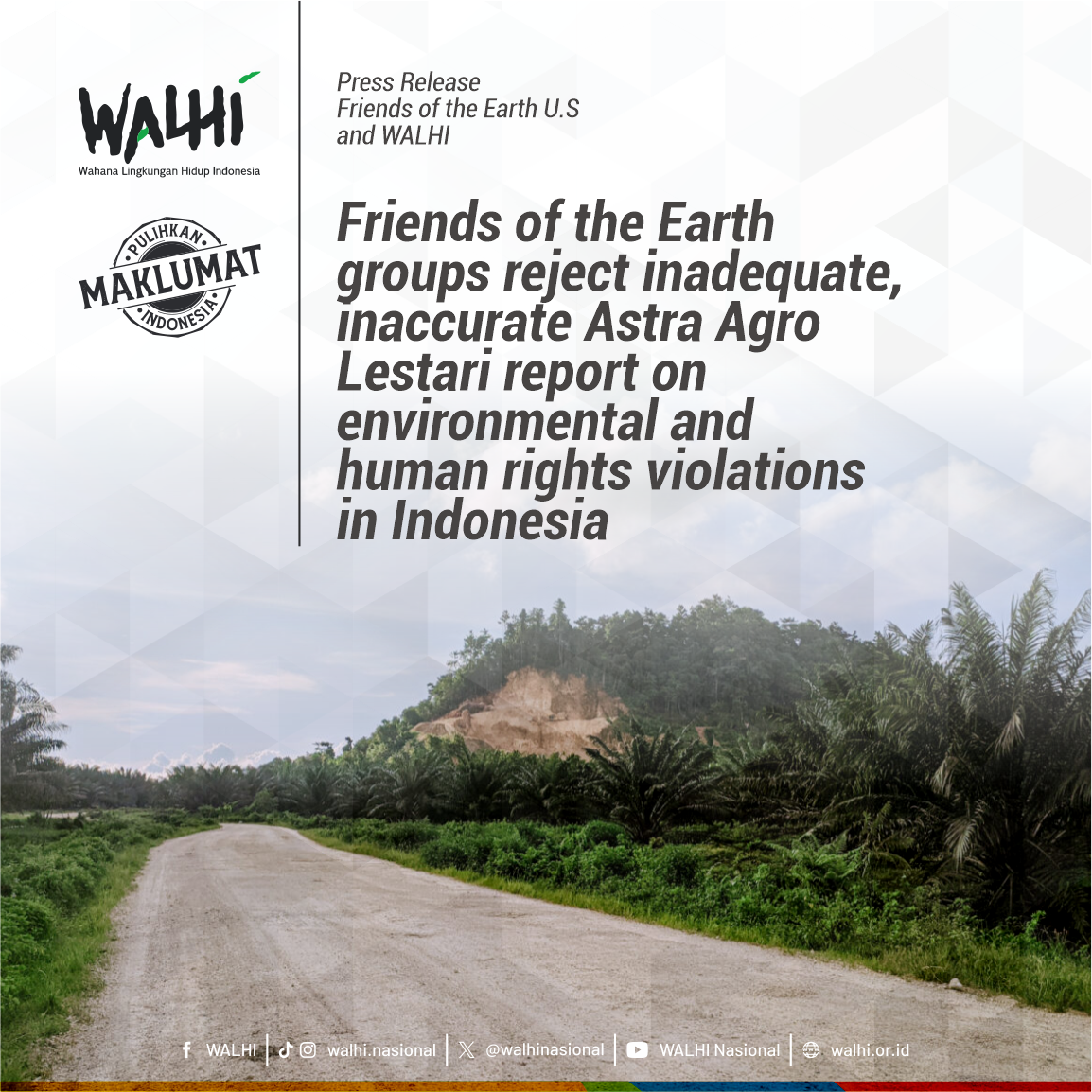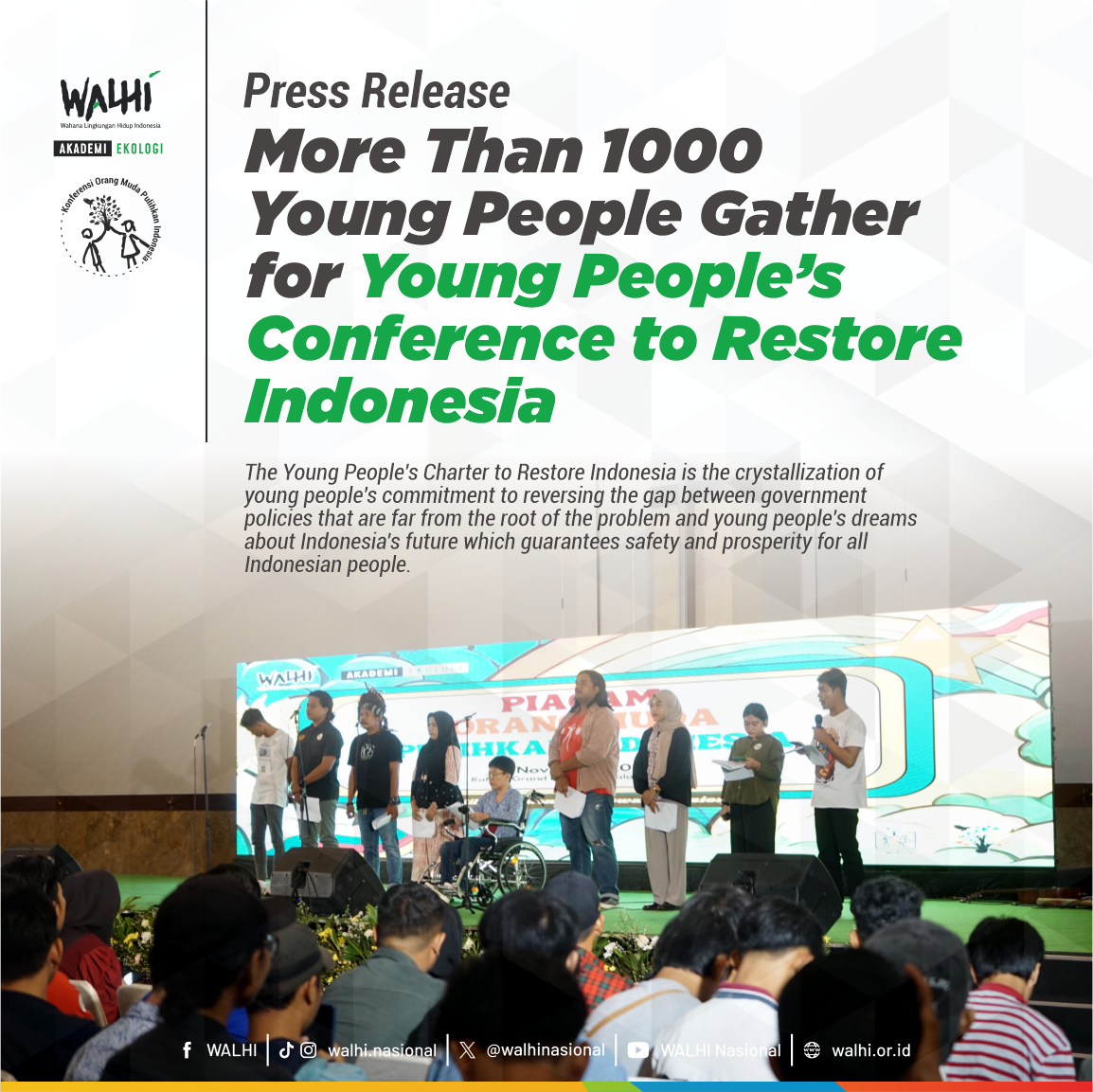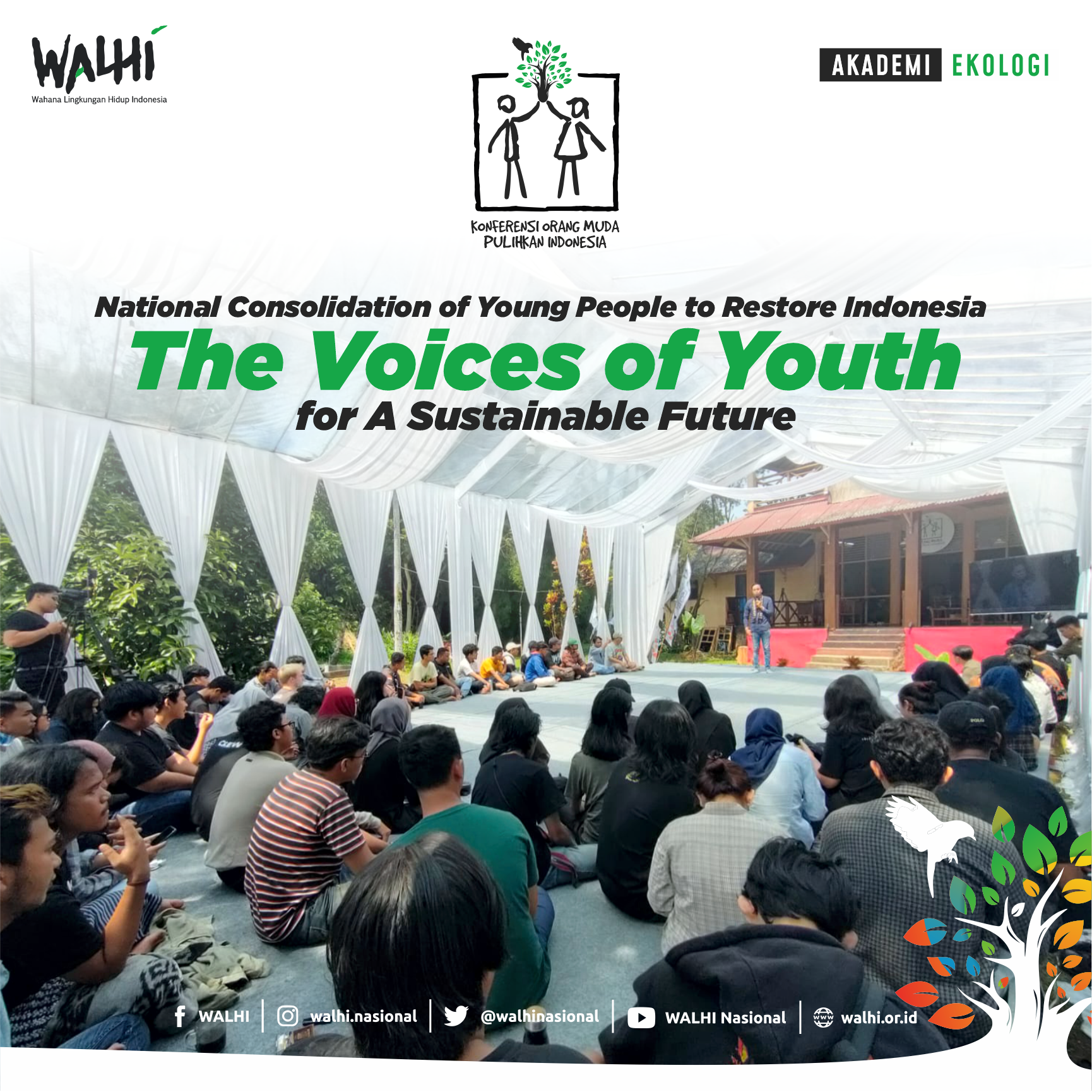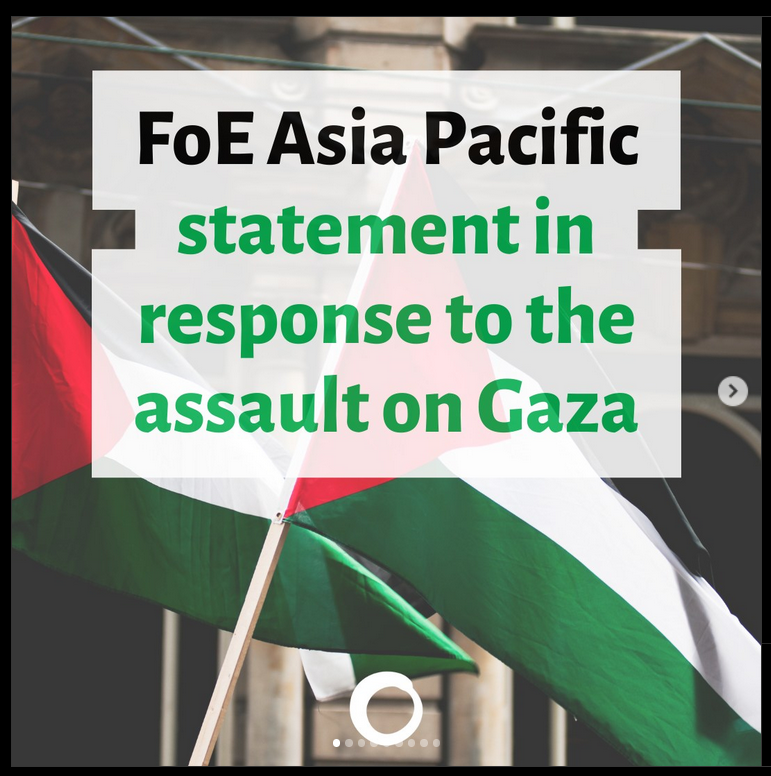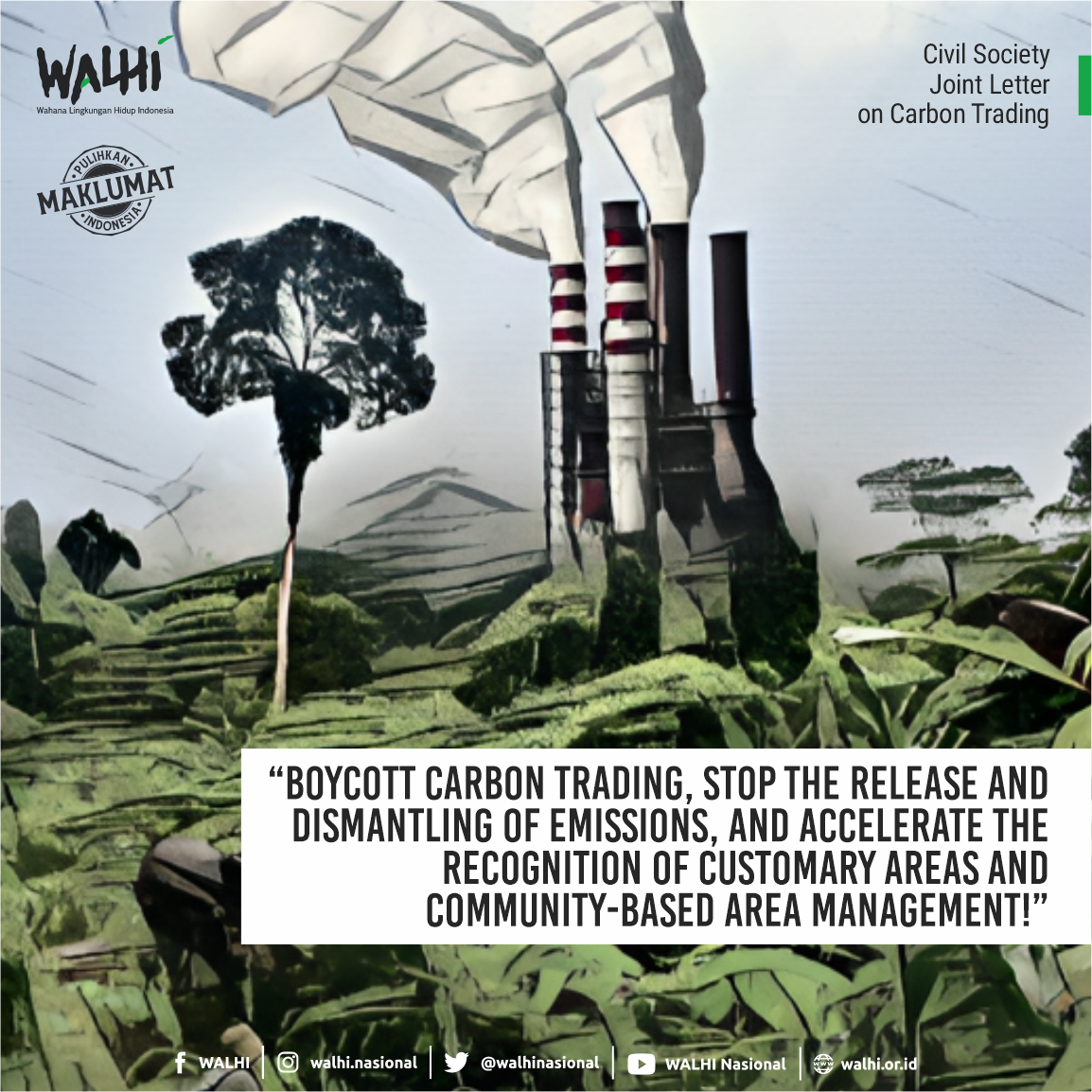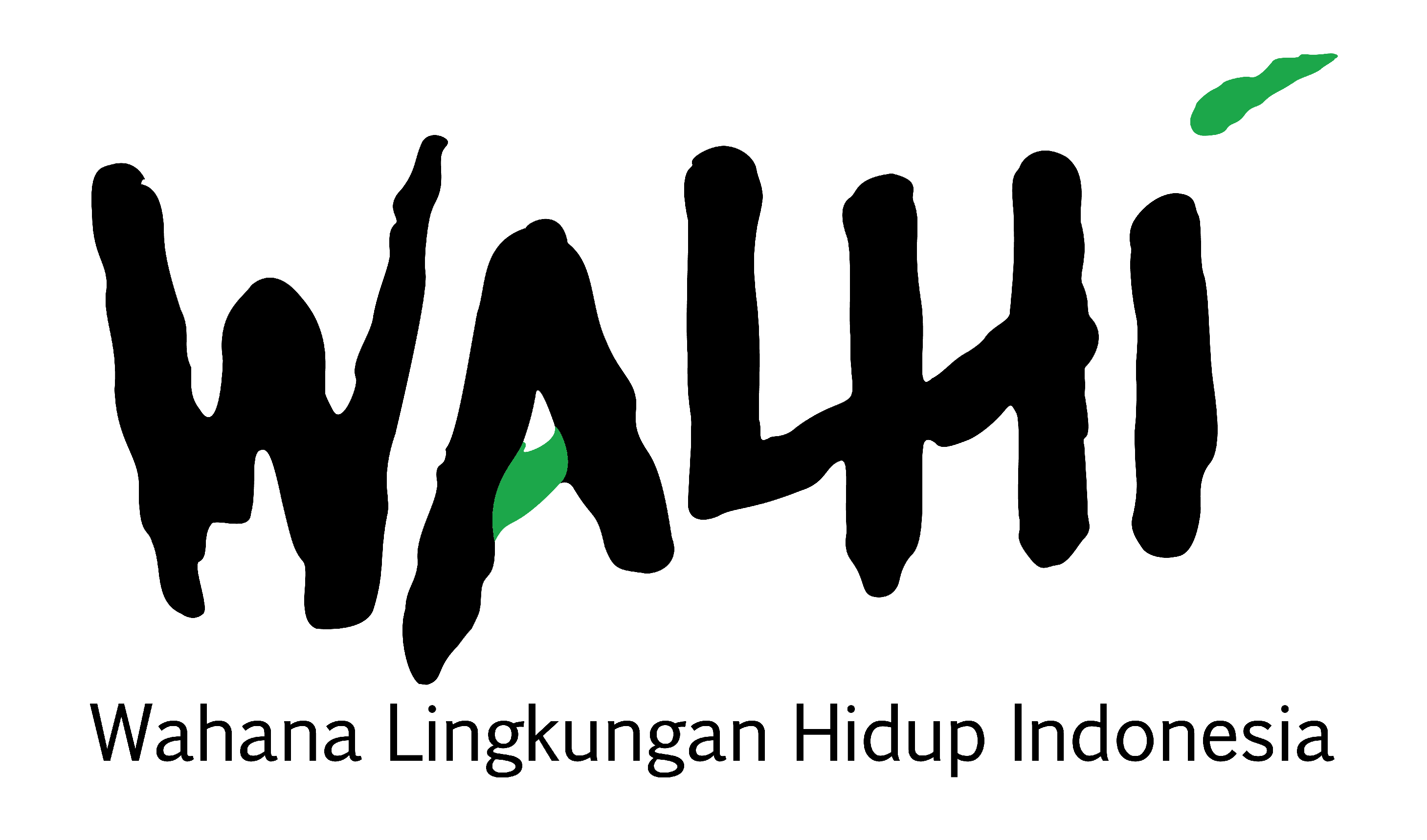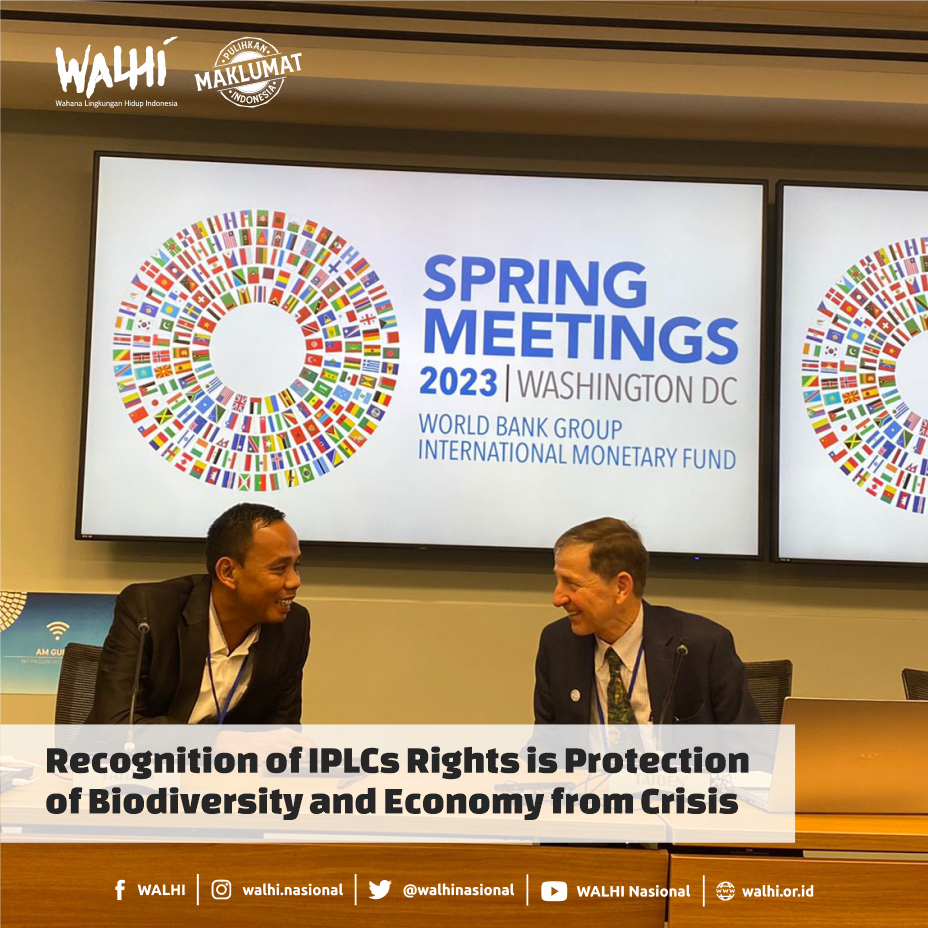
Agus Dwi Hastutik
Walhi/Friends of the Earth Indonesia
As a mega-biodiversity country, Indonesia is not immune to the biodiversity crisis, which is now globally viewed as an existential crisis equivalent to climate change. The challenges that Indonesia will face in the future are not only about the impact that will be experienced by the current crisis. However, ecosystem and environmental restoration that is borne will be serious work if no measured and immediate drastic change is made to the cause of the crisis.
Government policies are still pretty much in favor of accumulation of capital which often neglect the protection of Indigenous Peoples and Local communities (IPLCs) and biodiversity. Multilateral financiers, on the other hand, have yet to completely adopt meaningful policies to address these interconnected global concerns. With 75% of the world's landmass altering drastically, it is more necessary than ever to safeguard critical ecosystems that are critical not just to maintaining global ecosystem function, but also to halting climate change.
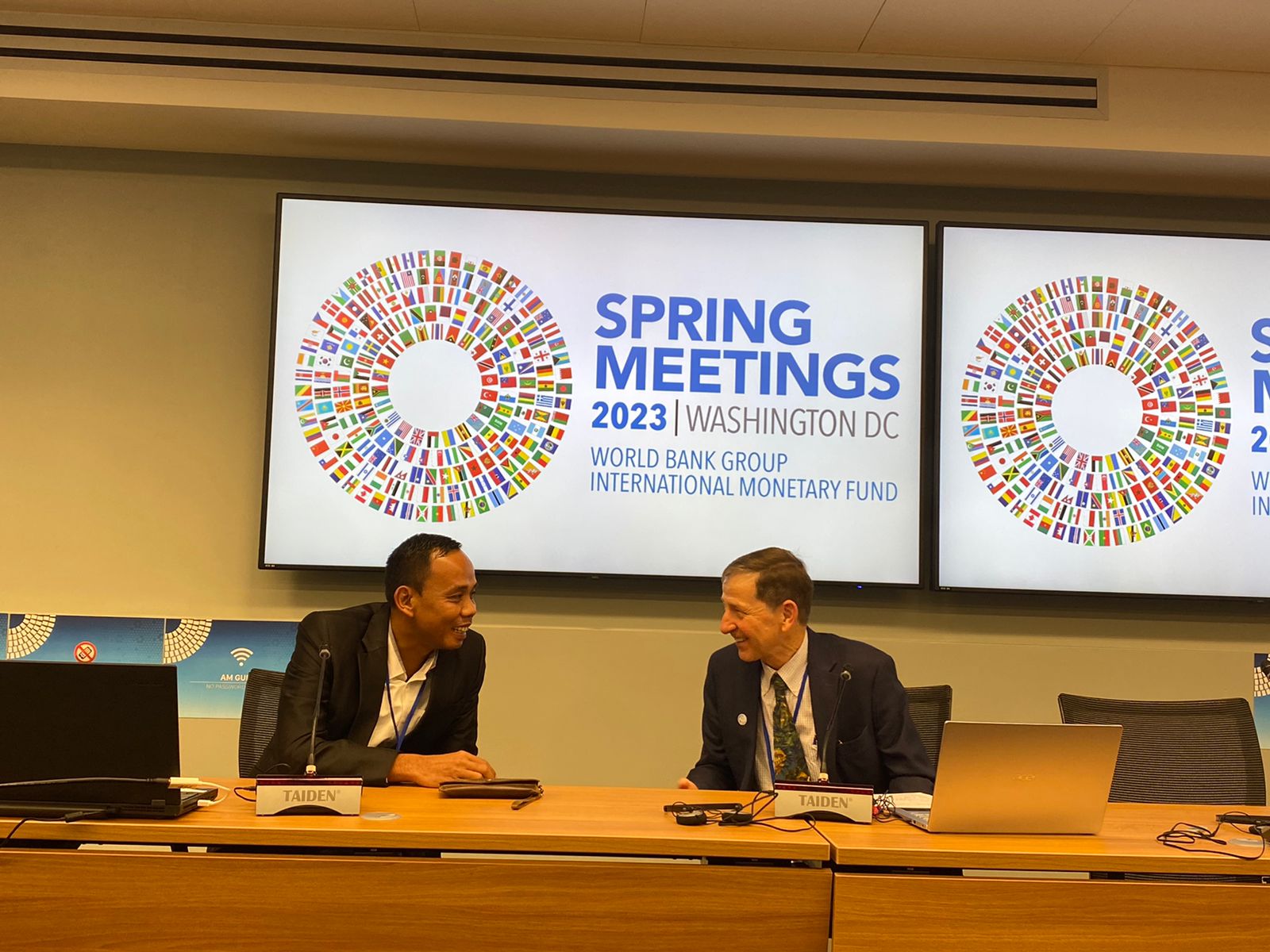
Our Executive Director, Zenzi Suhadi (left), at the Civil Society Panel Forum of World Bank IMF Spring Meetings 2023 in Washington DC, April 12 2023. Photo: WALHI.
In the Civil Society Panel Forum "Protecting Biodiversity in a Biodiversity Crisis" of World Bank and IMF Spring Meetings 2023 which took place on April 12 in Washington DC, USA, our Executive Director Zenzi Suhadi shared his standpoints that the destruction of the environment in Indonesia over last 60 years is due to the economic model based on extractive industries, which has caused adverse impact to the people, environment and biodiversity. These losses are also inexorably tied to the roles of banks and IFIs that still support devastating developments in Indonesia. Given Indonesia is renowned for its rich yet unique biodiversity, it is important that banks should shift financing to an economic model that is not modifying nature and respect IPLCs who safeguard biodiversity. Recognition and protection of the managed area of the community is the key.
"The first big palm oil plantation in Indonesia was funded by the World Bank which took place in my home area in Bengkulu in 1987. I recall when I was a kid, our jungle, lush green forest, turned into a big-scale plantation. I could see with my bare eyes the losses of our livelihoods." Said Zenzi.
Natural resources extraction in Indonesia began roughly 60 years ago since the old order regime with logging, monoculture plantations, mining, and later sea concessions. The situation is not getting any better with the Indonesian government's ambition to become the world's largest nickel producer using renewable energy transitions, despite touted as “environmentally-friendly” the extraction of mining to become raw material for batteries is way far from it.
“In the past Indonesia only had two seasons, rainy and dry seasons. Right now we have two other seasons, floods and fires seasons.” added Zenzi, referring to the natural extraction in Indonesia that has frequently resulted in floods during the rainy season and fires during the dry season. For instance, Indonesia has about 20 million of peatland ecosystems. However, peatland, which essentially is a wet ecosystem, is haphazardly modified to accommodate palm oil and acacia plantations in Indonesia.
“Why did the economy in sixty years result in many disasters? Because the economy changes the ecosystem, modifies the ecosystem.” Emphasized Zenzi.
In order to see a better situation in Indonesia, we must leave the geopolitical economy. The paradigm of growth that global capital regards as providing welfare and prosperity for the people through extraction cannot be deemed favorable to the people. If anything, this growth benefits only a small number of people at the risk of ecosystems getting destroyed and people getting uprooted.
It's ridiculous that we're compelled to adapt to a crisis situation for which we had no control in the first place. If reverse, why don't the government and big corporations also adapt to the vast, diverse situation that Indonesia has, which also demonstrates different economic practices, rather than solely depending on the economic to extractive model which has driven the crisis we are facing today?
Walhi believes there is no alternative, but we have the right way for the economic path that should be pursued to exit from the crisis. Indonesia, in particular, should get back to its destiny.
As a tropical country, the world's largest archipelago and located in the ring of fire, Indonesia has a diverse set of characteristics and landscapes from savanna fields, peatlands, wetlands, highlands, rainforest to small islands. Each of these landscapes is home to various charismatic yet, unfortunately, many of them are also endangered species.
The diverse set of landscapes in Indonesia have also formed the character of a social, economic and environmental order that complements each other from the process of the community adapting with nature, without modifying them.
“If we want to see a positive image, of what IPLCs are capable of in stewarding biodiversity and natural resources in vast landscapes while growing their local economy. We can make deforestation as history in Indonesia,” said Zenzi.
For years, Walhi has worked with communities on locally determined sustainable economic development that we call Ekonomi Nusantara. Walhi presently works with communities throughout the archipelago to restore 1,1 million hectares of land. The economy grows whilst the function and the rights of the people are restored. Contrary to today’s economic model, which we call horizontal growth. Ekonomi Nusantara grows vertically.
Horizontal economic growth is temporary. Where the economic growth will experience a stopping point when the deposits run out or the land for expansion needed is no longer available. For example, increasing the volume of oil palm production will require additional land because the type of oil palm is monoculture. Another example, coal, gold which continue to be mined by corporations will reach a depletion point when the deposits run out where coal and gold can no longer be mined. Meanwhile, the vertical growth is not land expansive. The increase in production will follow the growth of the tree, meaning that the bigger and older the tree, the better and higher the production. On the other hand, it has the ability to expand and realize the capacity of trees to capture carbon.
For instance, an established practice of communities in Tanjung Aur village in Bengkulu province. After years of reclaiming and managing land of a former logging concession in the agroforestry model, of which the company didn’t even bother to recover, communities have managed to restore the forest and function of the environment. In addition, they also benefit economically.
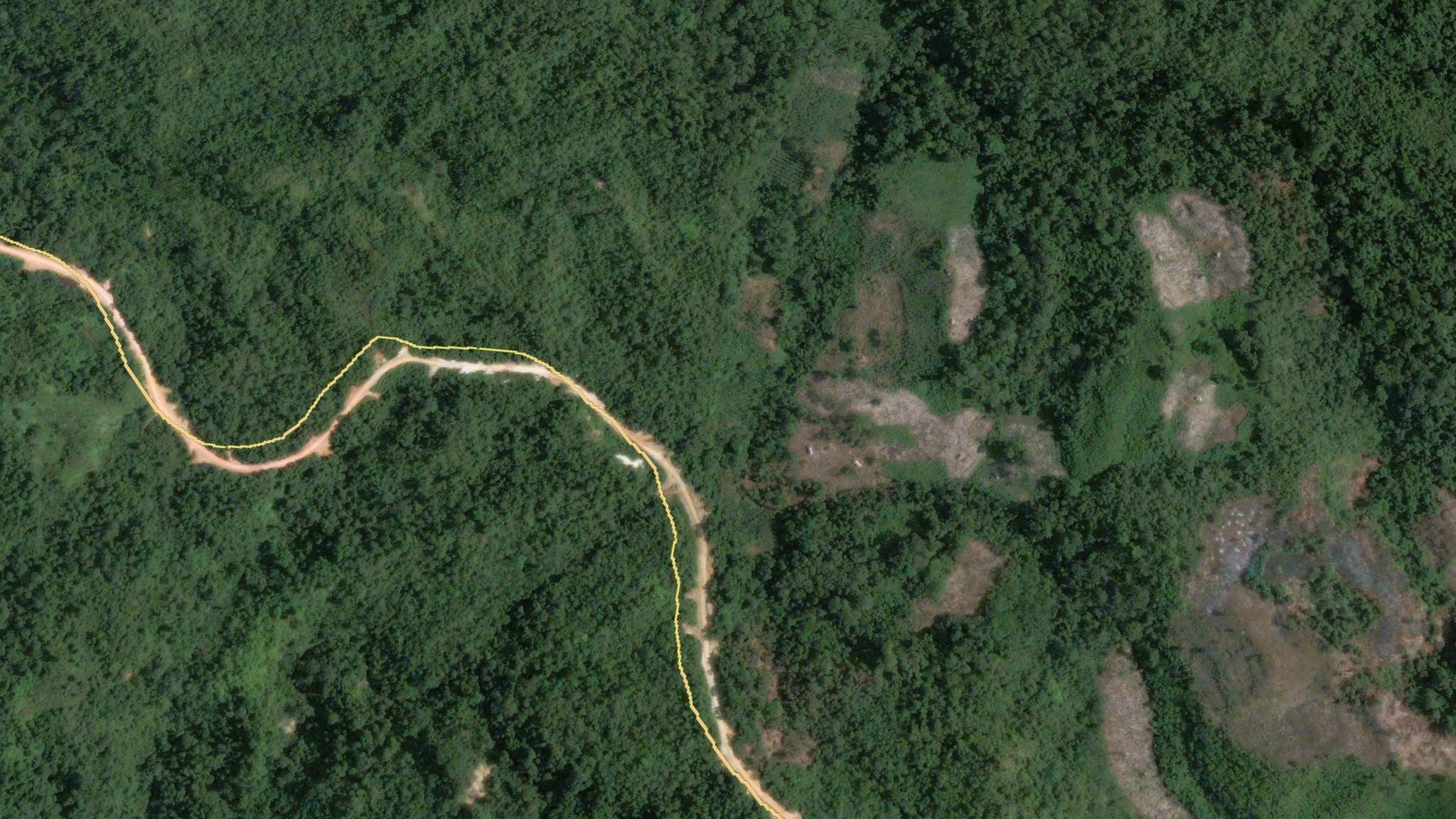
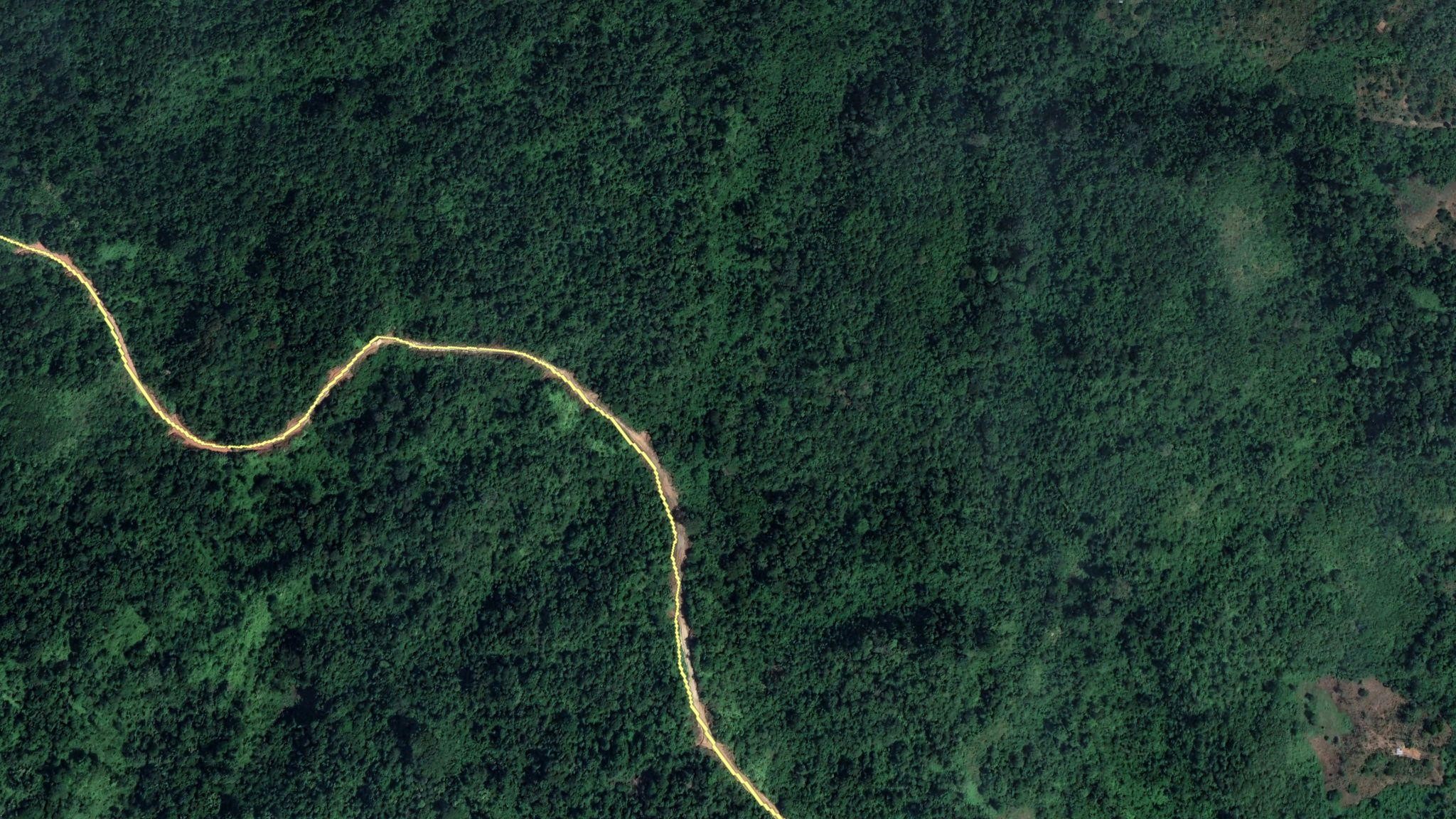
Satellite imagery of forest cover in Tanjung Aur village in 2003 and 2022. Community in Tanjung Aur village has successfully restored the area by intercropping with other plantations such as coffee, cloves, pepper, nutmeg, among others. Photo: WALHI
According to growing research, IPLCs play a critical role in maintaining the world's remaining biodiversity hotspots, which account for around 80% of global biodiversity. However, IPLCs and their knowledge are not yet recognized and protected; worse, they are stigmatized as having no knowledge at all.
“Only local communities have knowledge of biodiversity, which plants we can use for food. If there are no IPLCs, no knowledge from them, people like me will never know Indonesia.” said Zenzi.
Zenzi also emphasizes that for IPLCs protecting their territories does not only mean protecting rights to land and territories but fundamentally protecting their civilization, on which their cultural essence depends. As a legacy of the cross-generational adaptation process in placing a balance of life with the preservation of natural cycles. Therefore, it is important that banks improve their policy that protects the right IPLCs who have long lived in their area.
“We built our civilization, our culture, and knowledge by adapting with nature.” Said Zenzi, emphasizing that the ancestors' years of adaptation to nature should be the cornerstone of how we manage our natural resources and lead this nation.
Banks must understand their role and how to leverage their capital to avoid financing projects or developments that destroy the environment and biodiversity. Financial institutions should consider other options for economic development in Indonesia. Recognizing the rights of IPLCs to safeguard means more prospects for recovery of biodiversity losses and in the economy.
“Multilateral financiers should transform development pathways. Extractive industries should no longer be relevant anymore for them to put their money on. Supporting the various practices of the communities does not only mean supporting their rights to access land, we also discuss commodities that sustain the civilization of other countries.” Added Zenzi. For instance, many native plants and spices that are produced by the communities in Indonesia are also used in everyday life of people in other countries, such as Europe and the US.
“To date, the impact of palm oil plantation, mining, and other extractive industries have only been regarded as a concern for the people who are affected. If the current economic paradigm is not changed, when climate change worsens, problems will be brought to everyone's dinner table.” Closed Zenzi.

